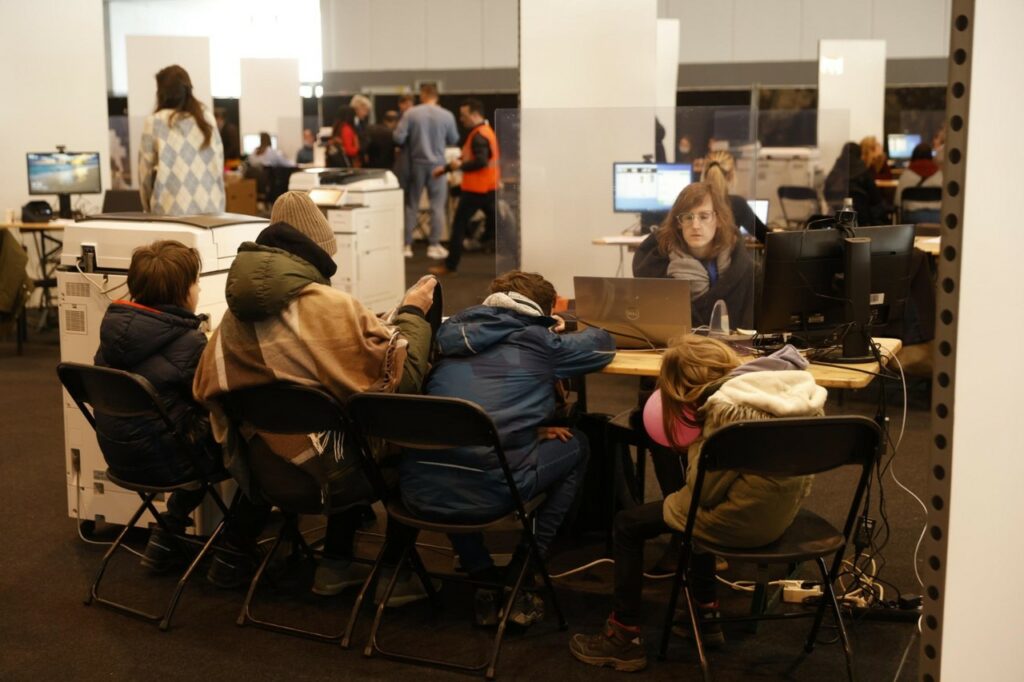Ukrainian refugees in Belgium can take entrance exams for higher education in the war-torn country so they don't lose out on their chance to sign up for a bachelor's or master's programme.
In response to a call from the Ukrainian government, the Flemish government will set up a location and provide necessary materials, including computer equipment and IT experts to solve any defects quickly, for the entrance exams to go ahead, while the Ukrainian Ministry of Education will arrange exam supervisors, who will take care of supervision.
"The Ukrainians are doing everything they can to offer as much continuity as possible to young people, even in these terrible circumstances. Flanders is happy to help with that. This entrance exam means hope for a better future for many young people," Flemish Minister of Education Ben Weyts said in a statement.
Passing entrance exams is a requirement for Ukrainian students to be accepted to a bachelor's or master's programme in their country. These are organised in centres across Ukraine, and before the Russian invasion, these written entrance exams were organised in the months of May and June.
As a result of the current conflict in the country, these did not go ahead, and to complicate matters, many young people who would like to transfer to higher education next year are currently abroad, for example, because they fled the war with their parents.
Related News
- 4,700 Ukrainian children enrolled in Dutch-speaking schools
- Ukrainian children in Flanders to get own summer school
Refugees in Flanders will instead be given the opportunity to take their entrance exams for higher education in the Conscience building in Saint-Joost-Ten-Node in Brussels, this summer.
The entrance exam for the bachelor's programmes will focus on knowledge of the Ukrainian language, mathematics and the history of Ukraine, while the entrance exam for the master's programmes will assess more advanced knowledge.
Other countries, including the Netherlands, France and Germany are also organising similar initiatives in their countries.

